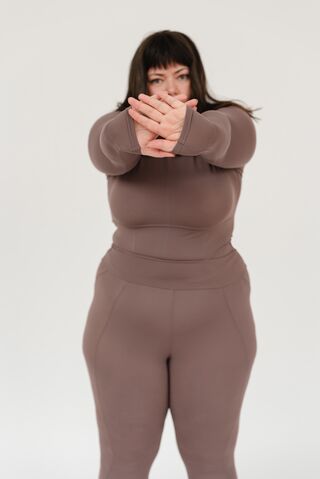Anxiety
The Simplest Act of Self Care? Stopping
Asking yourself, "Do I really want to keep doing this?" is good for your health.
Posted February 7, 2022 Reviewed by Tyler Woods
Key points
- Stopping something that isn't working is an act of self-care.
- When you notice yourself hitting a wall, remember to stop so that you don’t get hurt.
- Stopping may be one of the kindest act of self-care you can engage in.

It was 2013, and I was leading a workshop for a client in Baltimore when I got a call from a TV network asking if I could be interviewed on their show the next morning about how to deal with setbacks at work.
I had always dreamed about being on television as a thought leader. And still, I considered saying no because I weighed more than I wanted to. Nevertheless, I said yes, did the interview, and then cringed at how I looked on television.
Six months later, when they asked me for the next interview, I eagerly said yes, because I had lost the weight.
A few months after that, they came calling again, and I almost declined because I was sure everyone would notice that the weight was back on. As it turned out, the only person who noticed was me.
This was a terrible cycle. I knew it, but I didn’t know what to do about it.
At the beginning of the pandemic, my daughter, Sophie Riegel, and I were invited to talk about our book, Overcoming Overthinking: 36 Ways to Tame Anxiety for Work, School, and Life on a well-watched syndicated morning television show.
My weight was back up, but I figured that if I could just focus on an amazing necklace—oh yes, and helping people—the weight wouldn't be the most important thing. The irony wasn’t lost on me that I was having anxiety while trying to help others manage their own anxiety.
And then, just this past week, I was interviewed again. Again, feeling self-conscious about my weight, I put on a face of makeup and a great necklace, and tried to focus on helping others rather than on how I looked.
The reporter asked me, "What is one thing that everyone can do to, even when they have very little time, to engage in self-care?"
I said, "Everyone can stop doing something that clearly hasn't been working. They can take a pause rather than plowing forward. I'm doing that myself with my weight. It has been going up and down for 49 years. I'm not doing that anymore. And that, to me, is self-care."
I said it. And I meant it.
When you’re doing something that isn’t working, stop. In the 2020/2021 Tokyo Olympics, the world’s most decorated gymnast, Simone Biles stepped out of the competition when she knew that her mental health might jeopardize her physical safety. Rather than plow ahead, concerned with everyone else’s expectations of her, she stopped—and survived.
Here are some examples that might sound familiar to you:
- You might need to stop to recalibrate your expectations for starting graduate school while working full-time when you realize that it’s not leaving you time to be with your child.
- You might need to pause to reconsider whether you should keep saying yes to a seemingly unsatisfiable client.
- You may need to pause to reflect on whether helping your elderly mom stay at home rather than enter a care facility is really helping.
When you notice yourself hitting a wall, remember to stop so that you don’t get hurt. What do I mean?
- Stop trying to control something you can’t control.
- Stop trying to change something that isn’t changing.
- Stop trying to help someone who doesn’t want your help.
- Stop doing something that isn’t working.
- Stop doing something even though you've always done it that way.
- Stop moving forward without asking, “What do I want? Where am I trying to go? Is this working? What is this costing me?”
Stopping may be the kindest act of self-care you can engage in. What can you stop doing today?


